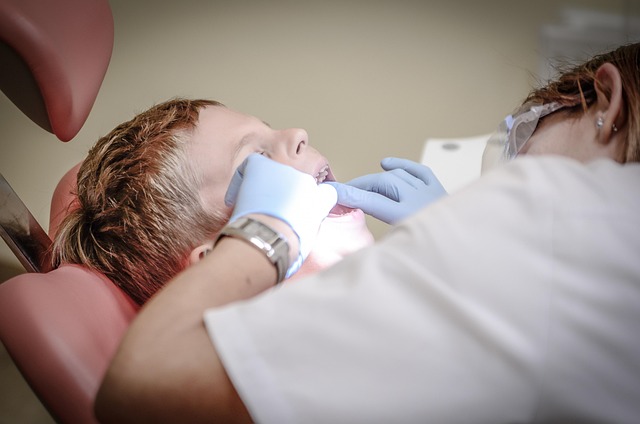Depression Screening and Guidelines United States 2026
In 2026, depression screening remains a key component of mental health care in the United States. Online screening tools, standardized questionnaires, and professional guidelines assist in identifying symptoms and determining when clinical evaluation may be necessary for effective management.

Overview of Depression Screening Tools
Depression screening tools are designed to assess the presence and severity of depressive symptoms in individuals. These tools typically consist of structured questionnaires evaluating factors such as mood, sleep, appetite, energy, concentration, and feelings of hopelessness or suicidal thoughts. Commonly used instruments in the United States include the Patient Health Questionnaire-9 (PHQ-9), Beck Depression Inventory (BDI), and Center for Epidemiologic Studies Depression Scale (CES-D).
Screening is intended to facilitate early recognition of symptoms, which is important for timely referral to mental health professionals, diagnostic clarification, and treatment planning. The use of validated tools helps standardize assessments and monitor symptom changes over time.
Online Depression Screenings: Usage and Considerations
Online depression screening tools have become widely accessible in recent years, especially in the U.S. These platforms allow users to anonymously complete standardized questionnaires and receive immediate feedback on symptom severity. Tools such as the PHQ-9 are often employed in digital formats, enabling assessments to be completed in minutes.
According to data from Mental Health America’s National Prevention and Screening Program, a significant proportion of individuals completing screening tests nationwide indicate moderate to severe depressive symptoms. However, it is important to emphasize that these screenings are preliminary assessments and do not replace comprehensive clinical evaluations conducted by qualified healthcare providers.
Limitations of online screenings include the inability to assess contextual clinical factors and possible inaccuracies due to self-report biases. Nonetheless, these tools can serve as useful indicators and encourage individuals to seek professional assessment when appropriate.
Clinical Guidelines for Depression Screening in the United States
The United States Preventive Services Task Force (USPSTF) recommends routine depression screening for adults, including pregnant and postpartum individuals, especially when systems are in place to ensure accurate diagnosis, effective treatment, and appropriate follow-up. Screening is also recommended for adolescents aged 12 to 18 when adequate supports are available.
The Centers for Medicare & Medicaid Services (CMS) and the Merit-based Incentive Payment System (MIPS) include depression screening and follow-up care as quality measures for eligible healthcare professionals. For example, MIPS Measure #134 requires documentation of depression screening using standardized tools for patients aged 12 and older, as well as a follow-up plan when screenings are positive.
Follow-up plans may involve referrals to mental health specialists, counseling, medication management, or other interventions tailored to the individual’s needs. Comprehensive care coordination is necessary to address the multifaceted nature of depression.
Interpretation of Depression Screening Results
Screening tools assign scores corresponding to symptom severity levels, generally divided into categories such as minimal, mild, moderate, and severe depression. For example, the PHQ-9 uses cutoffs to guide clinical decision-making:
- 0–4: Minimal or no depression
- 5–9: Mild depression
- 10–14: Moderate depression
- 15–19: Moderately severe depression
- 20–27: Severe depression
Scores indicating moderate or higher symptoms suggest the need for further clinical evaluation. It is important to consider other factors such as duration of symptoms, functional impairment, history, and risk factors before determining diagnosis and treatment.
Reliability and Limitations of Depression Tests
While standardized depression screening tools demonstrate good reliability and validity, they have inherent limitations. Self-reported responses may be influenced by an individual’s current state, understanding of questions, or willingness to disclose sensitive information.
Screening instruments are designed for initial identification rather than diagnostic confirmation, which requires a comprehensive clinical interview and assessment by a trained professional. False positives and negatives can occur, especially in populations with co-occurring medical conditions or cognitive impairments.
Clinicians are encouraged to interpret screening results within the context of the full clinical picture and to combine objective measures with professional judgment.
Mental Health Screening Trends in 2026
Recent data indicate a sustained prevalence of depressive symptoms identified through online and clinical screenings in the U.S. Mental Health America reported that approximately 78% of individuals completing online screenings in 2024 exhibited moderate to severe symptoms of a mental health condition, with depression being the most frequently identified.
The increasing availability of digital screening tools and telehealth services has expanded access to initial assessments, especially in underserved areas. Nevertheless, challenges remain in ensuring consistent follow-up care and in addressing disparities affecting certain populations.
Role of Healthcare Providers in Depression Screening
Primary care providers often serve as first points of contact for individuals experiencing depressive symptoms. Integrating depression screening into routine medical visits allows early detection and facilitates prompt intervention.
Providers use screening results to initiate discussions regarding symptoms, obtain thorough medical and psychiatric histories, and determine appropriate further evaluation or referrals. Collaborative care models involve communication between primary care and mental health specialists to optimize outcomes.
Use of AI and Technology in Screening
Advances in artificial intelligence and digital health have introduced new methods for mental health screening. AI-driven tools analyze responses and patterns that may enhance the sensitivity and specificity of assessments.
Mobile applications and online platforms increasingly incorporate validated questionnaires and symptom tracking functionalities. However, the use of these technologies requires attention to privacy, accuracy, and ethical considerations.
Typical Costs in United States (2026)
When considering depression screening in the United States, typical costs vary depending on the setting and provider:
- Basic option: Free online self-assessment tools are widely available and suitable for initial symptom checking but do not provide clinical diagnosis.
- Standard option: Depression screening conducted during primary care visits may be included in the office visit cost, typically ranging from $100 to $250 depending on insurance coverage and provider.
- Premium option: Comprehensive psychological evaluations performed by specialists can range from $300 to $600 or more, including detailed assessments and follow-up treatment planning.
Insurance plans commonly cover depression screening at no cost under preventive care guidelines, but coverage for follow-up evaluations and treatment varies.
Conclusion
Depression screening in the United States in 2026 continues to be a vital component of mental health care. Standardized tools, both online and in clinical settings, support the identification of depressive symptoms to facilitate early intervention. Understanding the scope, limitations, and appropriate use of these assessments helps ensure that individuals receive suitable evaluation and care.




